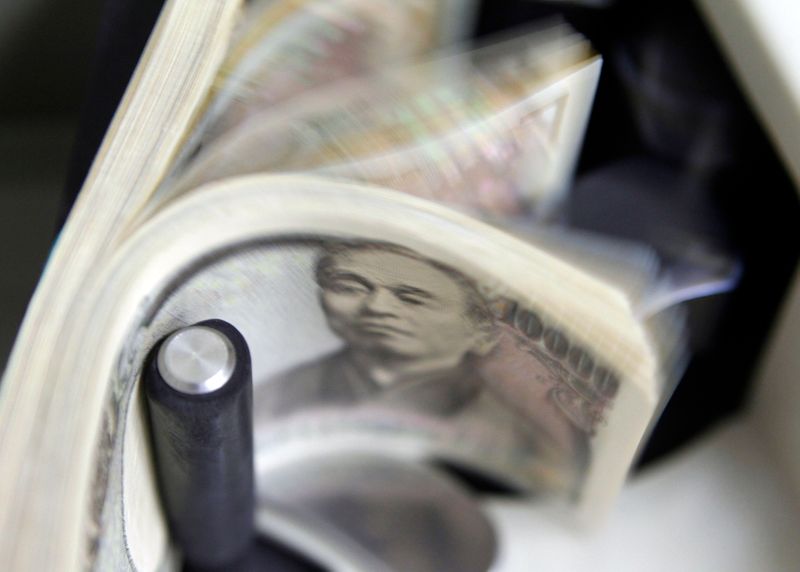By Kentaro Sugiyama and Makiko Yamazaki
TOKYO (Reuters) – Japan’s ruling party is not yet actively discussing what levels of the yen would be worth intervening in the market, although the currency’s slide to 160 against the dollar has prompted policymakers to act could incite, party executive Takao Ochi told Reuters.
“There is no broad consensus at the moment, but if the yen slides further towards 160 or 170 per dollar, it could be seen as excessive and could prompt policymakers to consider some action,” Ochi said in an interview on Tuesday.
However, at this point there has been little active discussion about what yen levels would be considered appropriate for such a move, said Ochi, the secretary general of the Liberal Democratic Party’s (LDP) Commission of Inquiry on the Financial and Banking Systems.
“The general thinking within the LDP seems that rather than rushing to reverse the yen’s decline, we should carefully evaluate the impact of the weakness,” he said.
The foreign exchange market has been largely driven by the large interest rate differential between Japan and the United States lately, and a weak yen has both pros and cons for the economy, Ochi added.
A broad rally in the dollar, driven by declining market expectations of a near-term US interest rate cut, has pushed the yen to a 34-year low around 155 yen, raising the possibility of currency intervention by Japanese authorities.
On Tuesday, Japanese Finance Minister Shunichi Suzuki issued his strongest warning yet about the likelihood of intervention. He said last week’s meeting with his US and South Korean counterparts laid the groundwork for Tokyo to act against excessive yen movements.
Remove ads
.
The yen is down about 9% against the dollar this year.
Decisions to intervene in the foreign exchange market are highly political in Japan. Tokyo last intervened in 2022 to prop up the yen, as public anger over the weak currency and a subsequent rise in the cost of living put pressure on the government to respond.


